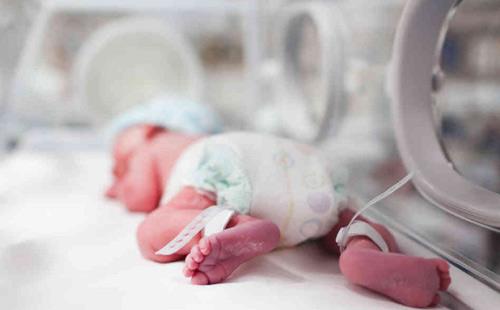Different from term babies, premature babies may need some tests as well as special medical intervention. Your baby may need to stay in the hospital's neonatal intensive care unit for a few days or weeks before you can bring your baby home to take care of himself.
Born when not ready for birth, premature babies need extra care, especially when taken home.
1 / When can you bring your baby home?
It will be a great moment to hear that your child is discharged from the hospital, reunited with his family. The pediatrician in charge of baby care will sign an approval to return your baby when he or she can:
• Self-breathing
• Stable body temperature
• Bottle or breast-feeding
• Slight weight gain at the time of discharge from hospital

Premature babies need special care
2 / What should you care about when you leave the hospital?
Usually, doctors will advise you on a few things to keep in mind before your baby gets home and it is your job to make sure the following issues will be covered by the doctor:
• How to take care of your baby at home
• When to contact the doctor or hospitalize the baby
• How to know if your baby is being fed properly, getting enough sleep and gaining weight properly
• Medicines that are suitable for some situations that you can give your baby to take
• Have your baby re-examined periodically. Regular contact with your baby's doctor is very important to your baby's health. Make sure you fully discuss your concerns about your baby with your doctor.
3 / Do you need to bring some medical equipment home?
Some premature babies need a monitor and some other home medical equipment. For example, when your baby shows signs of stopping breathing, a heart rate monitor is the first thing to be prepared at home. Others go home with oxygen machines. You will need to learn to care for and respond to your baby's special needs before you bring your baby home. You also need training in how to resuscitate your baby so that you can handle the situation in a timely manner.
4 / How to handle work at home?
Premature babies need to be fed more often. Your baby will also need a certain amount of time to get used to the new space. At this point, you should ask acquaintances, family members to help with the housework for the first few weeks. This will give you time to get used to taking care of your baby.
5 / Time to rest for mother and child
According to research by the Pediatric Institute, healthy babies often sleep on their backs. Sleeping on its stomach is considered unsafe because it can lead to sudden infant death syndrome.
Putting your baby on his back to sleep will help limit some other risks such as suffocation, flat head or little sleep. However, premature babies with certain health problems (such as lungs) will prefer to lie on their side. You should ask your doctor to advise you about the right sleeping position for your baby . In addition, you should also note the following:
• Keep quilts, pillows, small mattresses and some stuffed animals in your baby's crib
• Make sure baby's room is neither too cold nor too hot
• Do not smoke indoors
• Regularly take care of your baby's health
• Breastfeeding your baby
6 / What do you do when you need support?
Sometimes you will need help looking after your baby or simply need a shoulder to lean on when facing the stresses of being a first-time parent. In that situation, you should:
• Talk to your pediatrician, they are a rich source of knowledge and a great support choice for you.
• Join a parenting class or join a parent support group / community / forum. You can keep up with the local hospitals or they will refer you to some suitable sites or counselors that can help.
>>> See more discussions with the same related topic:
Get instructions to take care of your baby by email
How to take care of a newborn
Helping mothers prevent premature birth












